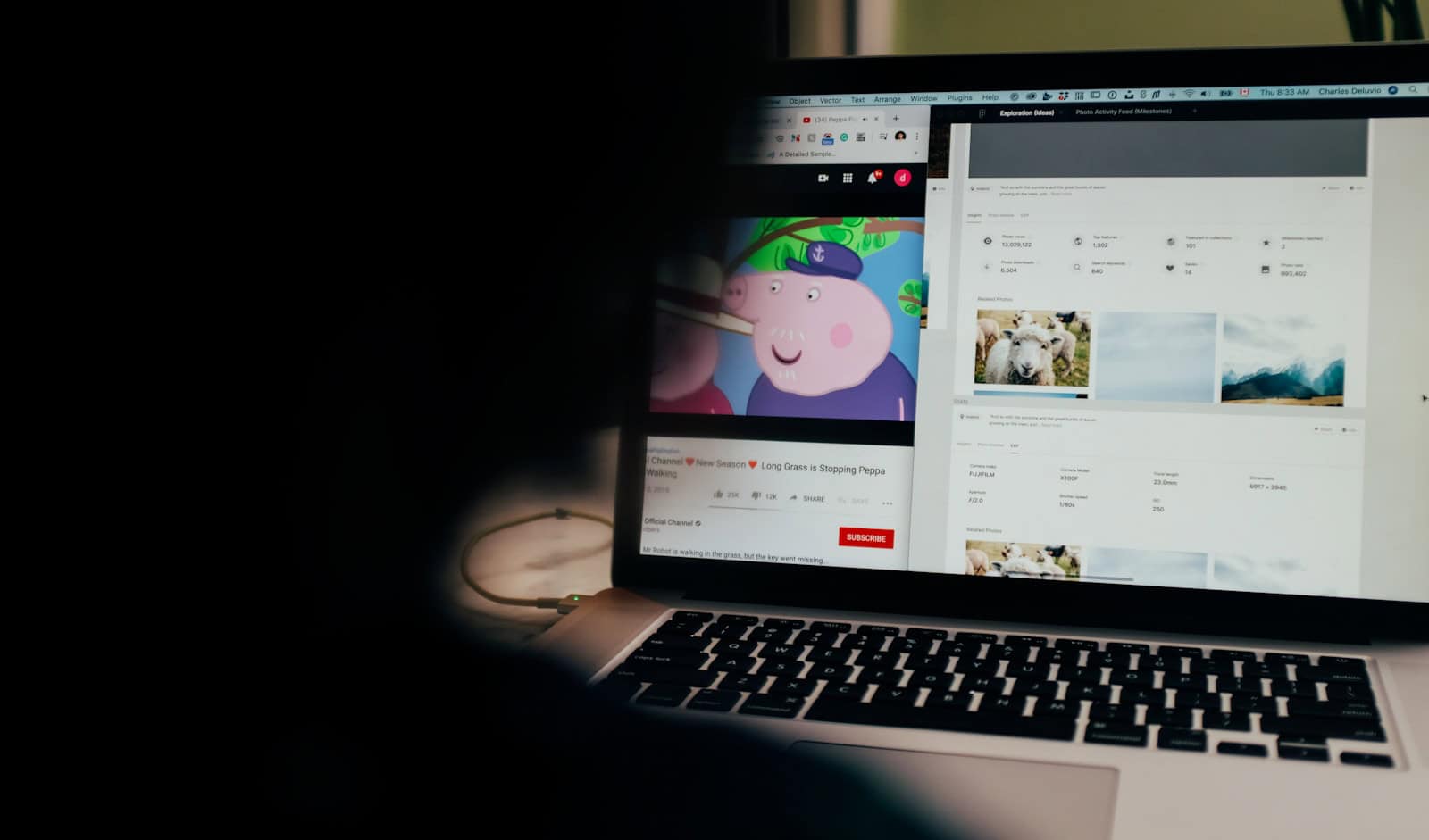Whether or not it’s legal to unblock YouTube videos via VPN depends on your location and local laws, YouTube’s terms of service, and copyright related factors. Using a VPN is generally legal in most countries. However, bypassing regional restrictions on YouTube might not be allowed. You also always have to keep YouTube’s terms of service in mind as bypassing restrictions violates that – so always make sure you’re in compliance with your local laws and YouTube’s rules.
Some countries ban YouTube altogether or certain videos, while others allow it but disapprove of bypassing blocks. It is important to check local laws before attempting to unblock YouTube. Additionally, your school or workplace might have its own policies regarding this – while some may allow you to use VPNs, proxy servers, or browser add-ons, others may not. Check with your local administrators to be sure beforehand to be safe.
Using a VPN to unblock YouTube videos is generally legal, but it depends on the circumstances:
- LocationUsing a VPN to access YouTube in a country where it’s banned is illegal. For example, YouTube is banned in North Korea, Iran, China, Sudan, Tajikistan, South Sudan, and Turkmenistan.
- Work environmentUsing a VPN to bypass network restrictions at a school, college, or workplace could result in disciplinary action.
- Terms of serviceUsing a VPN to access a platform may violate the platform’s terms of service, which could result in account restrictions.
- Copyright lawsBefore attempting to unblock YouTube, you should check YouTube’s terms of service and copyright laws.
- VPN detectionYouTube can detect and block VPNs based on IP addresses. If multiple users are accessing YouTube from the same VPN IP address, it can be a sign of VPN use.
VPNs work by encrypting your internet connection and routing it through an intermediary server in a location of your choice. This can help ensure that no third party is able to spy on your internet connection.
Other ways to unblock YouTube include: Using the Tor Browser, Using Google Translate, Using a browser extension, Modifying the URL, and Downloading YouTube videos.
Using VPNs for Unblocking YouTube: A Legal Gray Area
Legality of VPNs
In most countries, using a VPN is completely legal. They are tools for enhancing online privacy, security, and bypassing restrictions. However, the legality of using a VPN to unblock YouTube videos can be a bit murky, depending on several factors.
YouTube’s Terms of Service
YouTube’s terms of service generally prohibit using VPNs to access content that is geographically restricted. While using a VPN to access YouTube isn’t explicitly against the law in most places, it might violate YouTube’s rules. This could lead to consequences like temporary blocks or even account termination.
Regional Restrictions and Copyright Laws
Many videos on YouTube are subject to regional restrictions due to licensing agreements or copyright laws. Using a VPN to bypass these restrictions could potentially infringe on these laws, depending on your location and the specific content you’re accessing.
Censorship and National Laws
In some countries with strict internet censorship, using a VPN to access blocked content on YouTube or other platforms might be illegal. It’s crucial to research and understand the laws of your country before using a VPN for this purpose.
When VPN Use is Legally Justified
There are situations where using a VPN to unblock YouTube videos might be considered acceptable. For example, if you’re traveling abroad and want to access your usual YouTube content or if your school or workplace has unreasonable restrictions on YouTube access. However, it’s always best to err on the side of caution and be aware of the potential legal implications.
Understanding the Risks
| Potential Risk | Description |
|---|---|
| YouTube Account Termination | Violating YouTube’s terms of service could lead to your account being banned. |
| Copyright Infringement | Accessing copyrighted content without permission could result in legal action. |
| Violation of National Laws | In countries with strict internet censorship, using a VPN to bypass restrictions could be illegal. |
| Security and Privacy Risks with Unreliable VPNs | Some VPN providers might not be trustworthy, potentially exposing your data or compromising your online safety. |
Key Takeaways
- The legality of unblocking YouTube varies by country and method
- VPNs and proxies are common tools to access blocked content
- Check local laws and rules before trying to unblock YouTube
Legal Considerations and Restrictions
Unblocking YouTube involves several legal issues. These relate to internet censorship, copyright laws, and regional restrictions.
Understanding Internet Censorship
Many countries censor the internet. They block websites like YouTube for various reasons. Some want to control information. Others aim to protect citizens from harmful content.
Bypassing censorship can be risky. In some places, it’s against the law. People who do it may face fines or jail time. The severity of punishment varies by country.
Some nations have strict rules about VPNs and proxies. These tools are often used to unblock sites. Before using them, check local laws.
Copyright Laws and YouTube Videos
YouTube blocks some videos due to copyright issues. This happens when content owners claim their rights. Unblocking these videos may break copyright laws.
Watching blocked content can be illegal. It’s like stealing someone’s work. Copyright holders can take legal action against violators.
YouTube has deals with content creators. These deals decide where videos can be shown. Bypassing blocks ignores these agreements. It could harm creators financially.
Regional Restrictions and Geo-Blocking
Some YouTube content is only for certain areas. This is called geo-blocking. It’s based on licensing and distribution rights.
Unblocking geo-restricted content may violate terms of service. It can also break local laws. Some countries have rules about accessing foreign media.
Using VPNs or proxies to bypass geo-blocks is a gray area. It’s not always clearly legal or illegal. The risk depends on local laws and how strictly they’re enforced.
Companies might take action if they detect unblocking. This could mean losing access to services or facing legal troubles.
Technical Methods and Risks
People use different tools to get around YouTube blocks. These methods have pros and cons. Some are easier but less safe. Others are harder but more secure.
Using VPNs to Access Content
VPNs are popular for unblocking YouTube. They hide your real IP address and make it look like you’re in another country. This can get past location-based blocks.
To use a VPN:
- Pick a VPN service
- Install the app
- Connect to a server where YouTube isn’t blocked
- Go to YouTube and watch videos
Free VPNs exist but can be risky. They might sell your data or have weak security. Paid VPNs are usually safer and faster.
VPNs also encrypt your traffic. This keeps your online activities private from your internet provider.
Proxy Servers and Their Limitations
Proxy servers are another way to unblock YouTube. They act as a go-between for your device and YouTube.
Types of proxies:
- Web proxies (easy to use, often free)
- SOCKS proxies (faster, more versatile)
Proxies can be less secure than VPNs. They don’t always encrypt data. This means someone could see what you’re watching.
Many free proxy sites have ads or malware. Be careful when choosing one. Proxies can also be slow, especially for videos.
Alternative Techniques and Their Caveats
Some people use the Tor browser to access blocked sites. It’s very private but can be slow for streaming video.
Browser extensions can sometimes unblock YouTube. They’re easy to install but might not work in all cases.
Google Translate can be a sneaky way to view blocked videos. Just paste the YouTube URL into the translate box. It doesn’t always work and the video quality might be poor.
These methods can help access YouTube. But they might break terms of service or local laws. It’s important to understand the risks before using them.
Frequently Asked Questions
YouTube blocking can happen for various reasons. Here are some common questions about unblocking YouTube and the methods to do so.
How can one access YouTube when it has been blocked by an administrator?
Using a VPN is a common way to bypass administrator blocks. VPNs hide your real location and can make it seem like you’re browsing from somewhere else. Proxy servers are another option. They act as a middleman between you and YouTube.
What are the methods to unblock YouTube on a Chrome browser?
Chrome extensions can help unblock YouTube. Some extensions change your virtual location. Others might bypass network restrictions. It’s important to choose trusted extensions from the Chrome Web Store.
Is using software to bypass YouTube’s ad blockers considered illegal?
Using ad blockers on YouTube is against their terms of service. It’s not illegal but YouTube might block users who use them. Some creators rely on ad revenue so blocking ads can hurt them.
What steps should be taken to unblock YouTube at school?
Schools often block YouTube to limit distractions. Using a mobile data connection can bypass school Wi-Fi blocks. Some students use proxy websites. These sites can access YouTube through a different web address.
Are there legal repercussions for watching shows on YouTube that fall under geo-restriction?
Watching geo-restricted content isn’t usually illegal for viewers. But it does go against YouTube’s rules. Content creators might face issues if they share restricted shows without permission.
How can you unblock YouTube if parental controls have been set to block it?
Parental controls are meant to protect kids online. Talking to parents about changing settings is the best approach. Some teens use guest modes or different devices to get around blocks. This can damage trust with parents.







